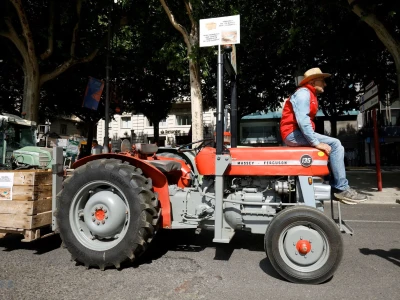
India braces for heat waves in Q2, impact seen on inflation, election
A heat wave curtailed India's wheat production in 2022, forcing it to ban exports.
MUMBAI, April 1 (Reuters) - India is likely to experience more heat-wave days than normal between April and June, the weather office said on Monday, potentially hitting agricultural production and hampering government efforts to bring down food inflation.
A heat wave for the third year in a row could dent production of wheat, rapeseed and chickpeas, and also lift power demand above supply during the summer season. India is the world's second largest wheat producer.
In the April-June period various parts of the country could record 10 to 20 heat-wave days compared to the normal four to eight days, Mrutyunjay Mohapatra, director-general of the India Meteorological Department (IMD), told a virtual news conference.
The extreme weather could also impact India's parliamentary election, the world's largest, which is being held over nearly seven weeks from April 19th. Nearly one billion people will be eligible to vote and election campaigning has already begun.
Voters will be exposed to the heat waves and will need to take precautions according to the various advisories already issued, said Kiren Rijiju, India's minister for earth sciences.
"During the election in India, people will come out for election rallies, meetings.....There will be heavy activity all across the country," Rijiju said.
In April, the crucial month for winter-sown crops coming to maturity, above normal maximum temperatures are likely across most parts of the country, said Mohapatra of IMD.
Most of the wheat harvested during this period is in the central state of Madhya Pradesh, while in northern states the crop is in the grain formation stage and the harvesting comes later, he said.
A heat wave curtailed India's wheat production in 2022, forcing it to ban exports.
Power demand usually spikes during the summer season and to ensure undisrupted supplies, power generation stations' maintenance schedule has been either deferred or has already been completed, said a government official.
India's power ministry has asked the state-run National Thermal Power Corporation (NTPC) to secure additional gas supplies in case of a surge in demand, the official added.
The Reuters Daily Briefing newsletter provides all the news you need to start your day. Sign up here.




